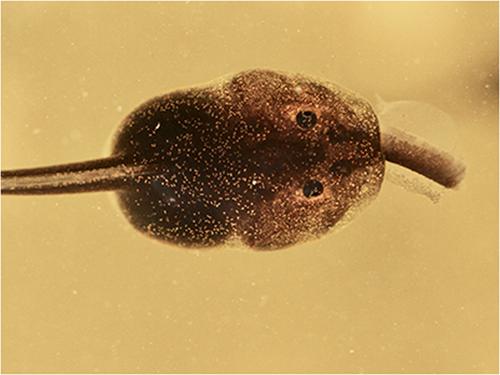当前位置:
X-MOL 学术
›
Evol. Dev.
›
论文详情
Our official English website, www.x-mol.net, welcomes your feedback! (Note: you will need to create a separate account there.)
Plasticity-led evolution: A survey of developmental mechanisms and empirical tests.
Evolution and Development ( IF 2.9 ) Pub Date : 2019-08-26 , DOI: 10.1111/ede.12309 Nicholas A Levis 1 , David W Pfennig 1
Evolution and Development ( IF 2.9 ) Pub Date : 2019-08-26 , DOI: 10.1111/ede.12309 Nicholas A Levis 1 , David W Pfennig 1
Affiliation

|
Recent years have witnessed increased interest in evaluating whether phenotypic plasticity can precede, facilitate, and possibly even bias adaptive evolution. Despite accumulating evidence for “plasticity‐led evolution” (i.e., “PLE”), critical gaps remain, such as: how different developmental mechanisms influence PLE; whether some types of traits and taxa are especially prone to experience PLE; and what studies are needed to drive the field forward. Here, we begin to address these shortcomings by first speculating about how various features of development—modularity, flexible regulation, and exploratory mechanisms—might impact and/or bias whether and how PLE unfolds. We then review and categorize the traits and taxa used to investigate PLE. We do so both to identify systems that may be well‐suited for studying developmental mechanisms in a PLE context and to highlight any mismatches between PLE theory and existing empirical tests of this theory. We conclude by providing additional suggestions for future research. Our overarching goal is to stimulate additional work on PLE and thereby evaluate plasticity's role in evolution.
中文翻译:

可塑性主导的演变:对发展机制和经验检验的调查。
近年来,目睹了人们对评估表型可塑性是否可以先于,促进甚至可能使适应性进化产生偏见的兴趣。尽管积累了“可塑性主导的进化”(即“ PLE”)的证据,但仍然存在关键的缺口,例如:不同的发展机制如何影响PLE;某些类型的特征和分类群是否特别容易经历PLE;以及需要哪些研究来推动该领域的发展。在这里,我们首先通过推测发展的各种特征(模块化,灵活的监管和探索性机制)可能会影响和/或偏向PLE是否以及如何发挥作用来解决这些缺陷。然后,我们对用于研究PLE的特征和分类单元进行审查和分类。我们这样做的目的是确定可能非常适合在PLE环境下研究发展机制的系统,并突出显示PLE理论与该理论的现有经验检验之间的任何不匹配之处。最后,我们为将来的研究提供了其他建议。我们的总体目标是激发关于PLE的更多工作,从而评估可塑性在进化中的作用。
更新日期:2019-08-26
中文翻译:

可塑性主导的演变:对发展机制和经验检验的调查。
近年来,目睹了人们对评估表型可塑性是否可以先于,促进甚至可能使适应性进化产生偏见的兴趣。尽管积累了“可塑性主导的进化”(即“ PLE”)的证据,但仍然存在关键的缺口,例如:不同的发展机制如何影响PLE;某些类型的特征和分类群是否特别容易经历PLE;以及需要哪些研究来推动该领域的发展。在这里,我们首先通过推测发展的各种特征(模块化,灵活的监管和探索性机制)可能会影响和/或偏向PLE是否以及如何发挥作用来解决这些缺陷。然后,我们对用于研究PLE的特征和分类单元进行审查和分类。我们这样做的目的是确定可能非常适合在PLE环境下研究发展机制的系统,并突出显示PLE理论与该理论的现有经验检验之间的任何不匹配之处。最后,我们为将来的研究提供了其他建议。我们的总体目标是激发关于PLE的更多工作,从而评估可塑性在进化中的作用。


























 京公网安备 11010802027423号
京公网安备 11010802027423号